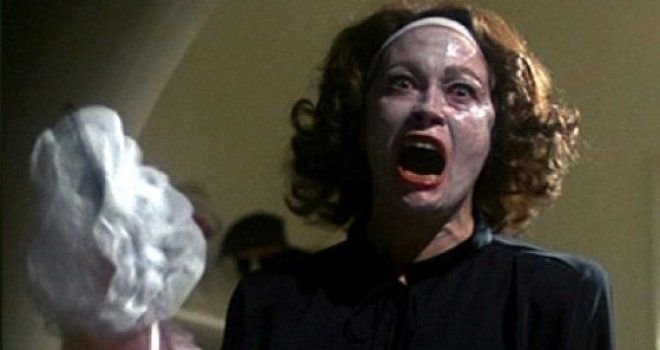Mother Of The Year or Mommie Dearest?: Demeter and Persephone
The Return of Persephone, Frederic, Lord Leighton, 1890–91 C.E.
One question that may arise when studying the Homeric Hymn to Demeter is whether Demeter is simply a protective mother endeavoring to save her innocent daughter from being victimized, or whether she is an overbearing parent who prevents her child from growing, attaining independence and finding true love. This is difficult to answer with certainty because while the story told within Homer’s hymn supports the former theory, the complicated, nuanced interrelationships of the gods and goddesses suggest that the latter premise may be accurate. Throughout this post, we will explore both possibilities and discuss the implications of each.
First, let’s briefly recap Homer’s tragic tale. Demeter, the powerful Greek goddess of the harvest, agriculture and fertility has her beloved daughter, Persephone, stolen and handed over to her uncle Hades—god of the underworld—by her own father, Zeus. (Talk about a dysfunctional family!) Subsequently, Persephone was rumored to have married Hades and to have lived beside him in the underworld. Demeter was understandably distraught and outraged about what she believed to have been the violent kidnapping of her innocent daughter. Devastated by this loss, she vengefully creates a severe famine which destroys all of the earth’s crops. In response, Zeus sends a multitude of gods and goddesses in hopes of convincing the stubborn Demeter to restore fertility to the earth.
The angry, grief-stricken mother refuses until Zeus strikes a deal permitting Persephone to be returned to her——that is, as long as she hasn’t eaten anything from Hades’ underworld. Soon after, Persephone is reunited with her mother in the world of the living. Sadly, Zeus’ conditional deal is broken when Persephone admits that Hades had “forced” her to eat six sweet seeds of a pomegranate before exiting the ostensibly dark, lonely underworld.
Was Demeter a loving, dutiful mother who was simply trying to protect her child? Clearly there is evidence to support that Demeter was a fiercely dedicated mother who cared deeply for Persephone. The goddess of the harvest endeavored to always keep her daughter close to her and was distraught when she was lost. “She sped off like a bird, soaring over land and sea, looking and looking.” (Nagy, trans. 2020, lines 44-45). Demeter couldn’t eat, drink or rest until her child was returned to her safely. “She was wasting away with yearning for her daughter with the low-slung waistband.” (Nagy, trans. 2020, lines 201-202). It can be argued that Demeter’s undying love and constant concern for her daughter support the premise that she was the ultimate protector and parent.
This goddess also acts as a nurturer when she seeks the mortal role of a child’s caregiver in the town of Eleusis. “I could take some newborn baby in my arms, and nourish him well. I could watch over his house. I would make his bed in the inner recesses of well-built chambers..” (Nagy, trans. 2020, lines 122-124). Demeter clearly possessed extraordinary powers and also exhibited strong maternal instincts. Still, the question remains whether this goddess was motivated by something other than the pure unconditional love of a mother.
Was Demeter a controlling, selfish guardian who refused to allow her daughter to mature and lead her own life? We don’t know for sure if Persephone was “forced” into Hades' custody and compelled to eat the fruit’s seeds as the myth tells. “..then I sprang up for joy, but he, stealthily, put into my hand the berry of the pomegranate, that honey-sweet food, and he compelled me by biē to eat of it.” (Nagy, trans. 2020, lines 411-413). Although the beautiful Persephone spoke these lines to her mother in Homer’s Hymn, the reader cannot be certain of the young goddess’ perspective. Just as a teenager may bend the truth to please one’s mother or to avoid parental punishment, we are left to wonder if perhaps Persephone tailored her words to meet her mother’s stifling and definitive expectations of her.
Maybe Persephone had secretly fallen in love with her husband of the underworld over time and didn’t want to leave him forever? After all, she had finally been given a taste of independence, power and adulthood on her throne beside Hades. “I am the brother of Zeus the Father. If you are here, you will be queen of everything that lives and moves about, and you will have the greatest tīmai in the company of the immortals.” (Nagy, trans. 2020, lines 365-366). This would be an enticing offer for any young goddess! We know that Persephone loved and missed her mother but we cannot be sure of her intentions with respect to returning to the world of living.
It is interesting to consider both theories about Demeter’s true nature and the complicated relationship between Persephone and her mother. Ancient Greek myths portray these goddesses with stereotypically female characteristics (i.e. Demeter as nurturing, vengeful, emotional, and Persephone as beautiful, naive, objectified). A deeper look at their complex personalities forces us to consider their additional traits (i.e. Demeter as dominant, powerful, feared, and Persephone as intelligent, cunning, empowered). These complex, immortal women have many sides. Therefore, it is reasonable to conclude that Demeter may have been both Mother of the Year and a little bit Mommie Dearest too.
Joan Crawford, Mommie Dearest (1981), Paramount pictures
Scene from the Movie Tangled, Walt Disney Pictures
References
Nagy, G. (trans. 2020). Homeric Hymn to Demeter. The Center for Hellenic
Studies. https://chs.harvard.edu/primary-source/homeric-hymn-to-demeter-sb/



